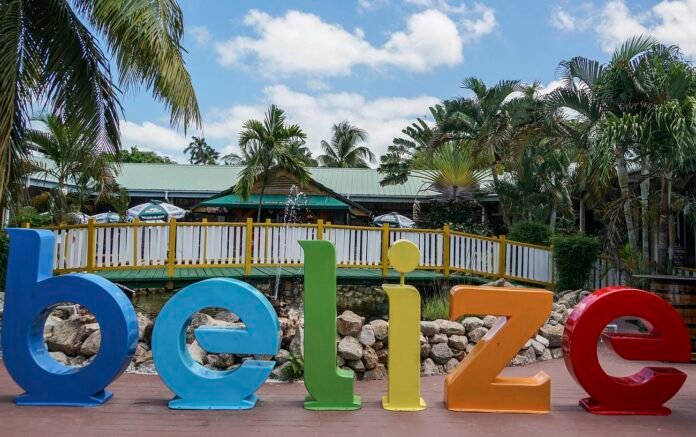Jamaica’s healthcare system is supported by both public and private health insurance options, each playing a distinct role in providing access to medical services. While the public system seeks to ensure universal healthcare access, private insurance offers comprehensive, flexible options for those who can afford enhanced coverage. Understanding the differences and similarities between the two systems is key to evaluating healthcare access and equity in Jamaica.
Public Health Insurance in Jamaica
Public health insurance in Jamaica is primarily managed through the National Health Fund (NHF) and the free public health system. The NHF is a statutory organization that subsidizes prescription drugs for people with chronic illnesses. Programs such as the Drugs for the Elderly Program (JADEP) and various institutional grant schemes support the infrastructure and delivery of public healthcare services. In 2008, Jamaica abolished user fees at public facilities, making healthcare more accessible for all residents, regardless of income.
However, public healthcare in Jamaica faces limitations. Chronic underfunding, staff shortages, and long wait times affect service quality. Moreover, public coverage does not extend to preventative services, vision, or dental care, and focuses primarily on chronic disease management.
Private Health Insurance in Jamaica
Private health insurance providers, both local and international, offer a broader range of services. Leading companies like AXA Global, Bupa Global, Cigna Global, William Russell, and Allianz Care provide extensive coverage that includes inpatient and outpatient care, emergency evacuation, maternity, dental, vision, and mental health services. These plans often have high annual benefit limits—up to USD 8 million—and cater to expatriates, tourists, and wealthier locals.
Unlike public health insurance, private plans are highly customizable, offering tiered packages suited to different budgets and health needs. However, premiums can be costly and are typically out of reach for lower-income Jamaicans, contributing to the country’s high uninsured rate—estimated at around 80%.
Similarities
Both public and private systems aim to improve healthcare access and reduce the burden of medical costs on individuals. Public insurance does this through subsidies and free services, while private insurers offer financial protection and convenience through comprehensive coverage. Additionally, both sectors recognize the importance of chronic disease management—public programs subsidize chronic illness medications, while private insurers provide specialized and preventative care for such conditions.
Key Differences
The primary difference lies in scope and quality. Public insurance provides basic healthcare access with limitations in service range and efficiency. In contrast, private insurance offers premium, expedited services and broader medical coverage. Another difference is affordability—public healthcare is largely free at the point of service, while private insurance requires substantial out-of-pocket costs or employer support.
Top Public Health Insurance Programs in Jamaica
Jamaica’s public health insurance landscape is primarily state-driven, with a few well-established programs aimed at improving healthcare access and affordability for citizens. Although the nation doesn’t have a wide range of public health insurance providers like some other countries, the available public options provide essential support, especially for vulnerable populations and those managing chronic illnesses. Below are the most prominent public health insurance initiatives in Jamaica.
1. National Health Fund (NHF)(Official Website: https://www.nhf.org.jm/)
- Cost: Free to enroll; services are subsidized.
- Coverage Features: NHF provides two types of benefits—Individual and Institutional. Individual Benefits cover subsidies on medications for 17 chronic illnesses such as diabetes, hypertension, and asthma. Institutional Benefits provide grants to public healthcare facilities for infrastructure, equipment, and health service improvements.
- Eligibility: Open to all Jamaican residents diagnosed with qualifying chronic conditions. Requires doctor certification and registration.
- Core Financial Features: Funded by taxes on tobacco products, alcohol, and National Insurance Scheme (NIS) contributions. Patients still pay part of the medication cost, but at significantly reduced rates.
- Consumer Satisfaction Score: 4.0/5.0 – Citizens value the affordability and nationwide accessibility through the NHFCard, which is accepted at over 100 participating pharmacies.
2. Free Public Health System (Universal Access Policy)
- Cost: Free at the point of use in public hospitals and clinics.
- Coverage Features: Offers universal access to basic medical services including consultations, surgeries, diagnostics, and hospital stays. However, it lacks coverage for dental, vision, and some specialized care.
- Eligibility: Open to all Jamaican citizens and residents.
- Core Financial Features: Fully funded by the Government of Jamaica since the removal of user fees in 2008.
- Consumer Satisfaction Score: 3.2/5.0 – While the cost-free access is appreciated, long wait times, overcrowding, and under-resourced facilities impact user experience negatively.
3. Jamaica Drugs for the Elderly Programme (JADEP)
- Cost: Highly subsidized, minimal cost for beneficiaries.
- Coverage Features: Provides access to affordable medications for 10 specified chronic conditions including arthritis, hypertension, and glaucoma.
- Eligibility: Jamaican citizens aged 60 and over. Requires registration and government-issued ID.
- Core Financial Features: Funded by the NHF and the Government of Jamaica. Supplements the NHF Individual Benefits program.
- Consumer Satisfaction Score: 3.8/5.0 – Elders find it financially helpful, though some report limited availability of certain drugs.
4. Health Promotion and Protection Fund
- Cost: Not an individual insurance but indirectly supports public access.
- Coverage Features: Provides grants to public and private entities for projects related to illness prevention, health education, and promotion. Helps build the foundation for sustainable public healthcare.
- Eligibility: Not directly consumer-facing—open to organizations applying for health-related project funding.
- Core Financial Features: Operated under the NHF and funded through public health taxes and government budgets.
- Consumer Satisfaction Score: N/A – As a fund supporting systemic improvements, it’s not rated by individual users.
5. Health Support Fund
- Cost: No direct cost to patients—acts behind the scenes.
- Coverage Features: Focuses on improving infrastructure, service delivery, and clinical efficiency in public hospitals and clinics across Jamaica.
- Eligibility: Public sector healthcare institutions apply for funding based on national healthcare needs.
- Core Financial Features: Funded and managed by the NHF to align with national health priorities.
- Consumer Satisfaction Score: N/A – While not directly rated, its impact is reflected in enhanced hospital facilities and services.
Top Private Health Insurance Providers in Jamaica
Private health insurance in Jamaica plays a crucial role in supplementing public healthcare, offering faster access to medical services, shorter wait times, and a broader range of benefits. These private insurers cater to both individuals and organizations, providing customizable health plans suited for different budgets and health needs. Below are the top private health insurance providers in Jamaica, along with their key features.
1. Sagicor Life Jamaica Limited(Official Website: https://www.sagicor.com/en-jm)
- Cost: Premiums vary depending on age, health status, and coverage level; starts around JMD $5,000/month for basic individual plans.
- Coverage Features: Offers a wide range of individual and group health insurance plans including hospitalization, surgical benefits, doctor visits, diagnostic services, maternity, and overseas emergency care. Some plans include wellness benefits and mental health coverage.
- Eligibility: Open to individuals, families, and businesses.
- Core Financial Features: Offers co-payment models and full coverage options. Premiums can be paid monthly or annually. Plans are customizable with add-ons for dental and vision.
- Consumer Satisfaction Score: 4.3/5.0 – Highly rated for customer service, wide provider network, and efficient claims processing.
2. Guardian Life Limited(Official Website: https://www.guardianlife.com.jm/)
- Cost: Premiums start at approximately JMD $4,500/month for basic individual coverage. Group rates available for employers.
- Coverage Features: Provides comprehensive medical plans including hospitalization, prescription drugs, surgical care, major medical expenses, and preventive services. Optional dental and vision benefits.
- Eligibility: Open to individuals and corporate clients.
- Core Financial Features: Offers both indemnity and managed care plans. Allows for employer/employee cost-sharing in group plans.
- Consumer Satisfaction Score: 4.0/5.0 – Known for its stable financial backing and efficient customer service, though some users note limitations in rural service availability.
3. British Caribbean Insurance Company (BCIC) – Medisure Health Plans(Official Website: https://www.bciconline.com/)
- Cost: Mid-tier premiums; starting from around JMD $6,000/month depending on coverage.
- Coverage Features: Offers tiered health plans covering hospital stays, outpatient services, diagnostics, maternity, and emergency evacuation. Medisure also includes international coverage options.
- Eligibility: Open to individuals and families.
- Core Financial Features: Flexible deductibles and customizable plan levels. Payment options include monthly and quarterly.
- Consumer Satisfaction Score: 3.9/5.0 – Valued for its international coverage and user-friendly enrollment, though claims processing time can vary.
4. Canopy Health Insurance(Official Website: https://www.canopyhealthinsurance.com/)
- Cost: Competitive pricing, with plans beginning at around JMD $4,000–$5,500/month for individuals.
- Coverage Features: Focuses on modern and personalized healthcare packages including wellness programs, mental health services, and family-focused plans. Includes doctor visits, specialist care, and prescriptions.
- Eligibility: Open to individuals, SMEs, and large organizations.
- Core Financial Features: Offers digital-first services, online claims, and benefit tracking. Encourages preventive care through wellness incentives.
- Consumer Satisfaction Score: 4.2/5.0 – Praised for innovation, transparency, and strong customer support.
5. Medicus Health Insurance(Official Website: https://www.medicushealth.com/)
- Cost: Premiums generally range between JMD $5,000–$8,000/month depending on plan type and age.
- Coverage Features: Includes hospitalization, surgical, outpatient, diagnostics, and prescription drugs. Emergency services and limited overseas coverage also available.
- Eligibility: Primarily targets individuals and families.
- Core Financial Features: Offers tiered plans with deductible options. Emphasizes cost-sharing to maintain affordability.
- Consumer Satisfaction Score: 3.7/5.0 – Offers dependable coverage at reasonable prices but has a smaller service network compared to larger providers.
READ MORE: Private and public health insurance of South Sudan (Make informed choices)


